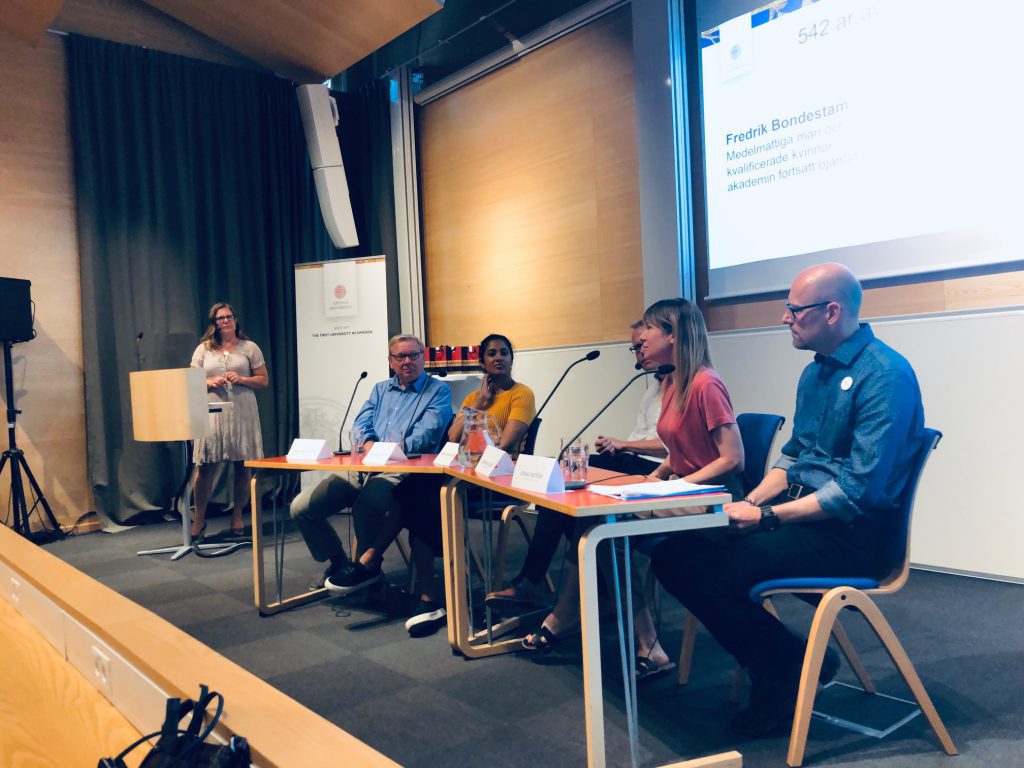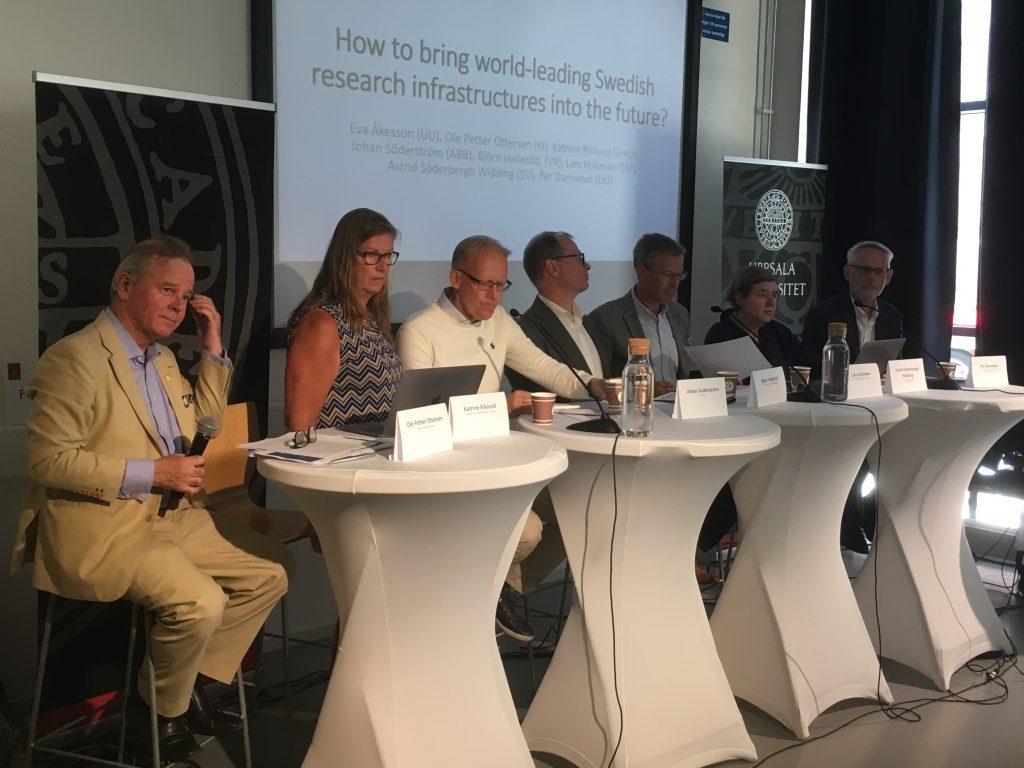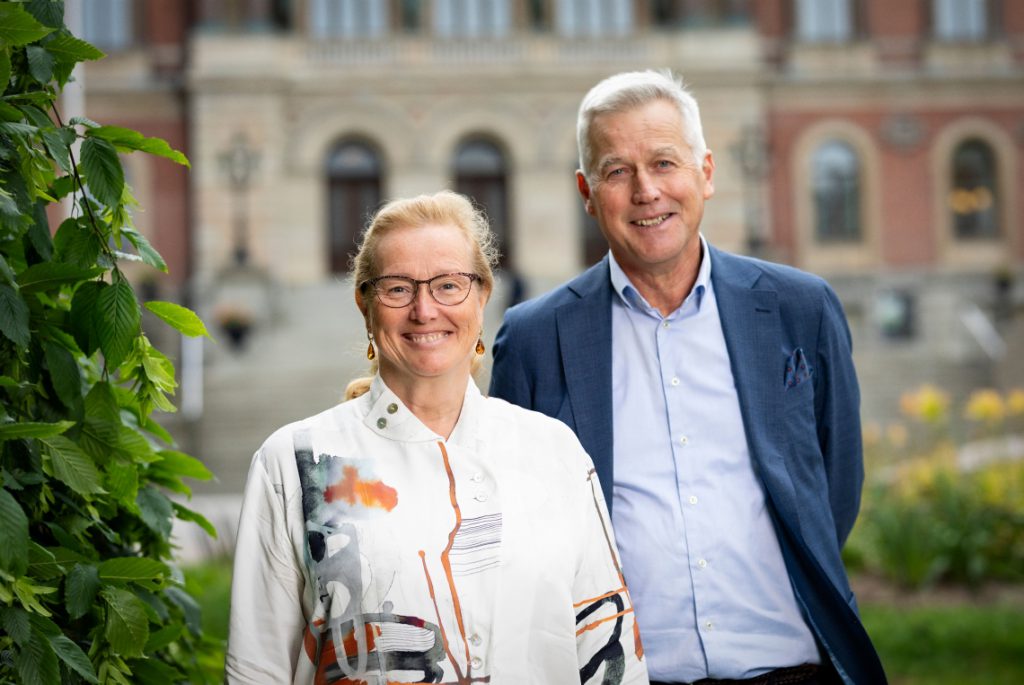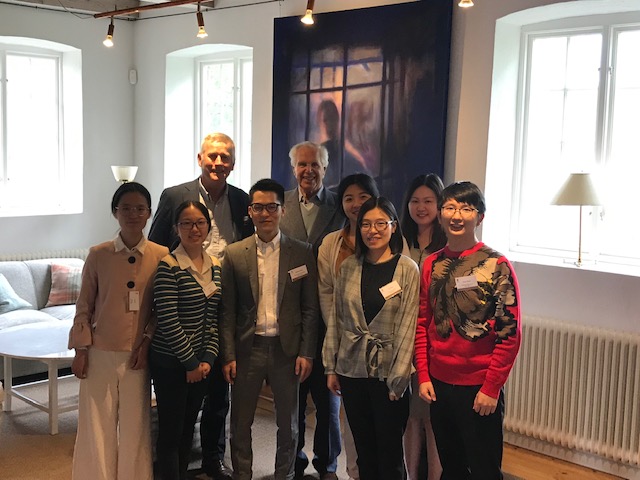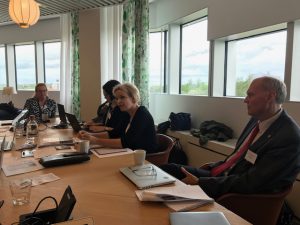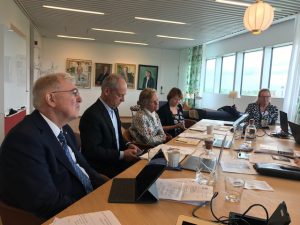Now the University is waking up again after the summer break. The new academic year will soon be under way in earnest and before long we will welcome students back to the University and say hello to our new students.
The Management Council began its autumn semester’s work with discussions at a lunch-to-lunch overnight away day.
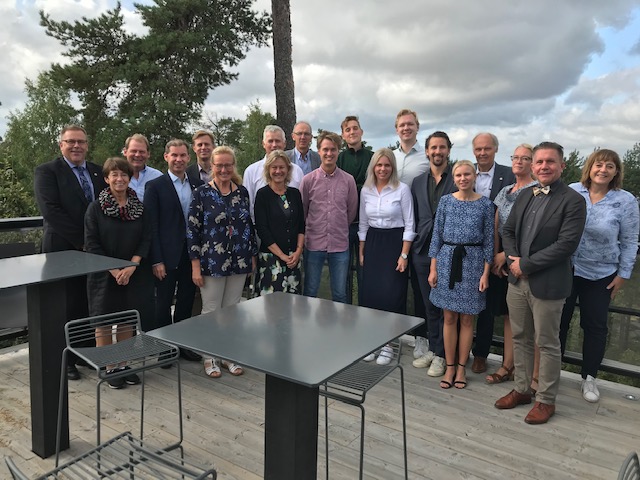
The purpose of the away day is to build up a shared picture of the issues we will be dealing with in the coming year, and to get to know one another a little better.
This time we began with a session with Petra Brask about how to make our meetings more efficient and better. Shorter meetings with a more clearly defined purpose are more meaningful. We put too little time into preparations and follow-up. We received several useful tips that I am sure will be widely reflected in the organisation.
During the Management Council’s away days, all participants present upcoming and recent developments in their area. The Deputy Vice-Chancellor and I began by looking back on what we have done so far during this term in office and outlining current developments in the national and international arena. We do not yet know what will become of the major government inquiries presented in the spring (the Inquiry on Governance and Resources and the Internationalisation Inquiry). However, we do know that we need to provide input to the research bill in October, so that is an urgent task. Our own work on our new mission, goals and strategies document and new rules of procedure continues. Preparations are under way for the Swedish Higher Education Authority’s evaluation of our quality assurance and quality enhancement work and a libraries inquiry has been launched, to name just a few current activities.
Support services are evolving to keep pace with our changing University. Acting University Director Per Abrahamsson, together with the heads of the three faculty offices, Johan Lundborg, Tony Hansson and Måns Östring, presented current developments in the support organisation. Two years have passed since the University Administration came together in the Segerstedt Building. The cooperation between divisions has grown and new divisions have been established, most recently the Division for Internationalisation on 1 July. University-wide IT will continue to feature prominently during the year to come.
After this, Kay Svensson gave us an in-depth tour of current issues in the area of internationalisation. This included an overview of the international networks in which the University participates, which the Management Council has been wanting. The Guild, which is a relatively new network, delivered research policy input to the European Commission this summer, ahead of the new framework programme. We also discussed how to go about a new European University Network (EUN) application. A lot has been begun and even more is on the way.
The first day’s discussions concluded with a regular Management Council meeting and an exchange of views on the new action plan for engagement and collaboration that has been circulated for comment within the University this spring. After that we had a chance to continue more informal discussions over dinner.
On the second day, we continued with presentations from the vice-rectors on what’s going on in their disciplinary domains. One cannot help but be impressed by the activities the University conducts and the advances being made in education and research. To conclude this session of presentations, the students described developments in cooperation between the unions after the abolition of compulsory student union membership and the transition from two students’ unions to eight. The focus during the autumn will be on moving cooperation forward.
The day ended with an in-depth discussion of the University’s input to the upcoming government bill on research policy. Daniel Gillberg and Katarina Wrede from the Planning Division guided us through the preparations. This is an issue we will continue to work on all autumn and we will come back to it in many connections. For example, on 17 September we have a vice-chancellors’ seminar. The deadline for our input to the Ministry is 31 October. The bill is expected to be presented in autumn 2020.
After these 24 hours, we feel updated and ready for a busy autumn. It’s obvious the Management Council will not be short of things to do over the next year – quite the contrary. Welcome back!

